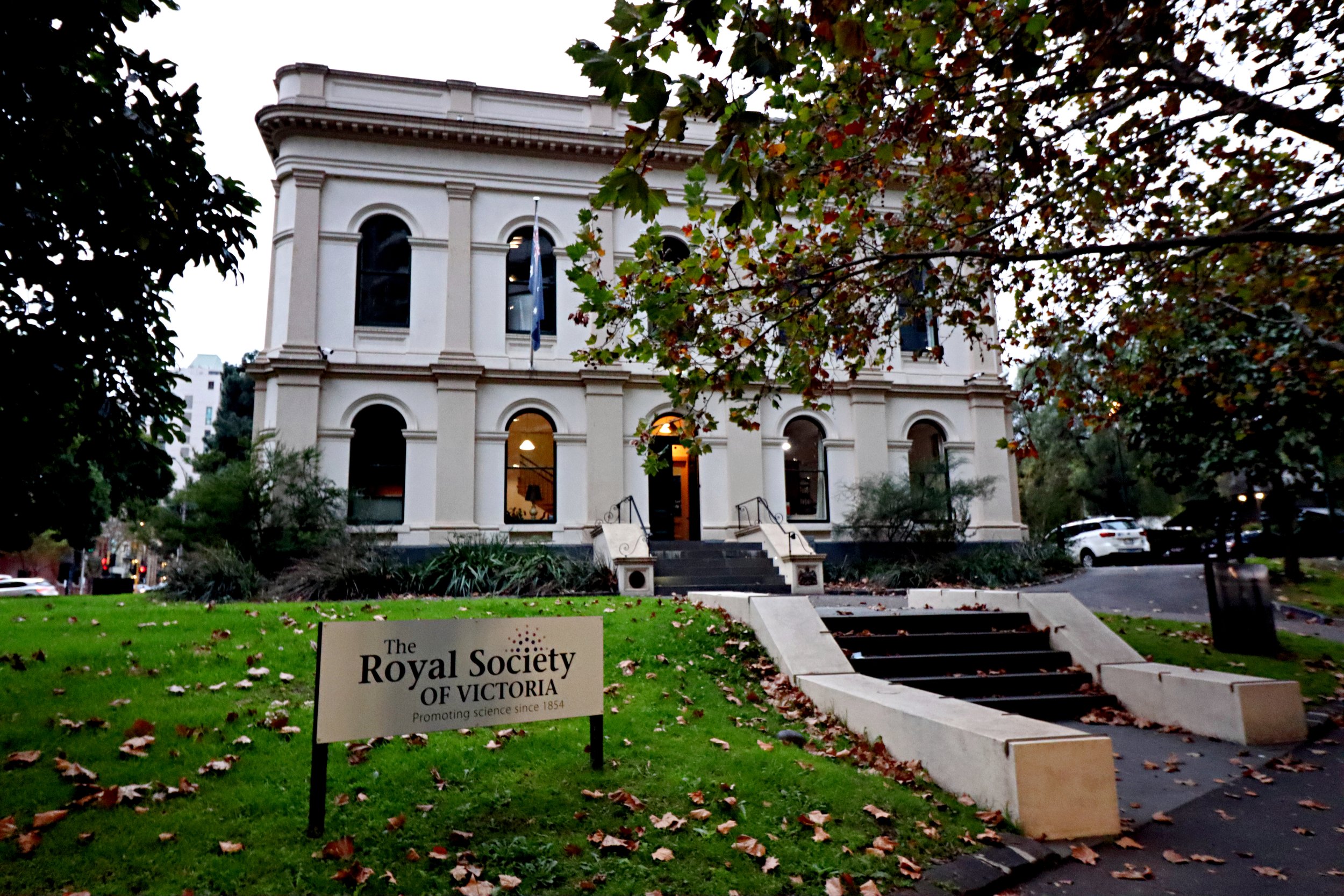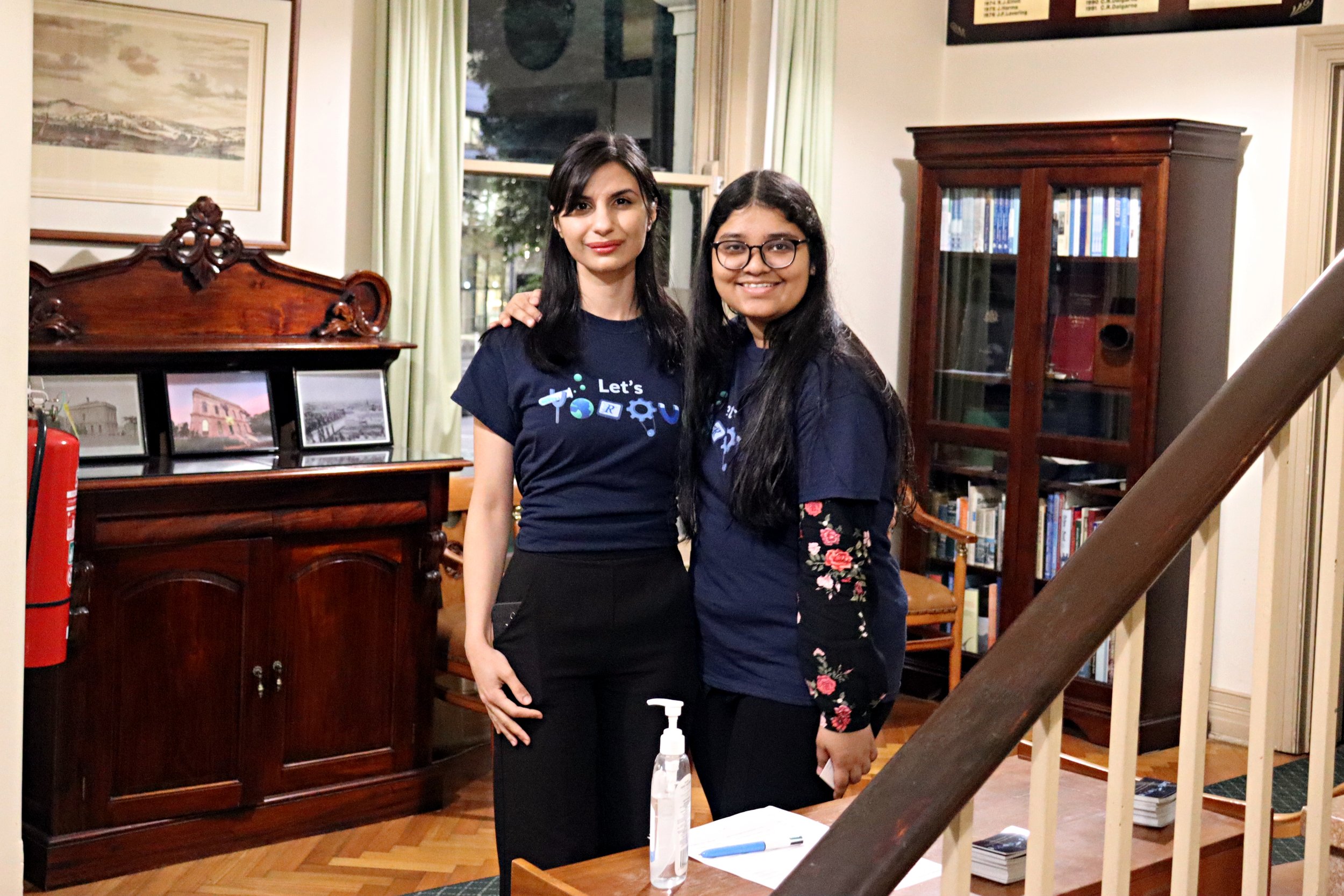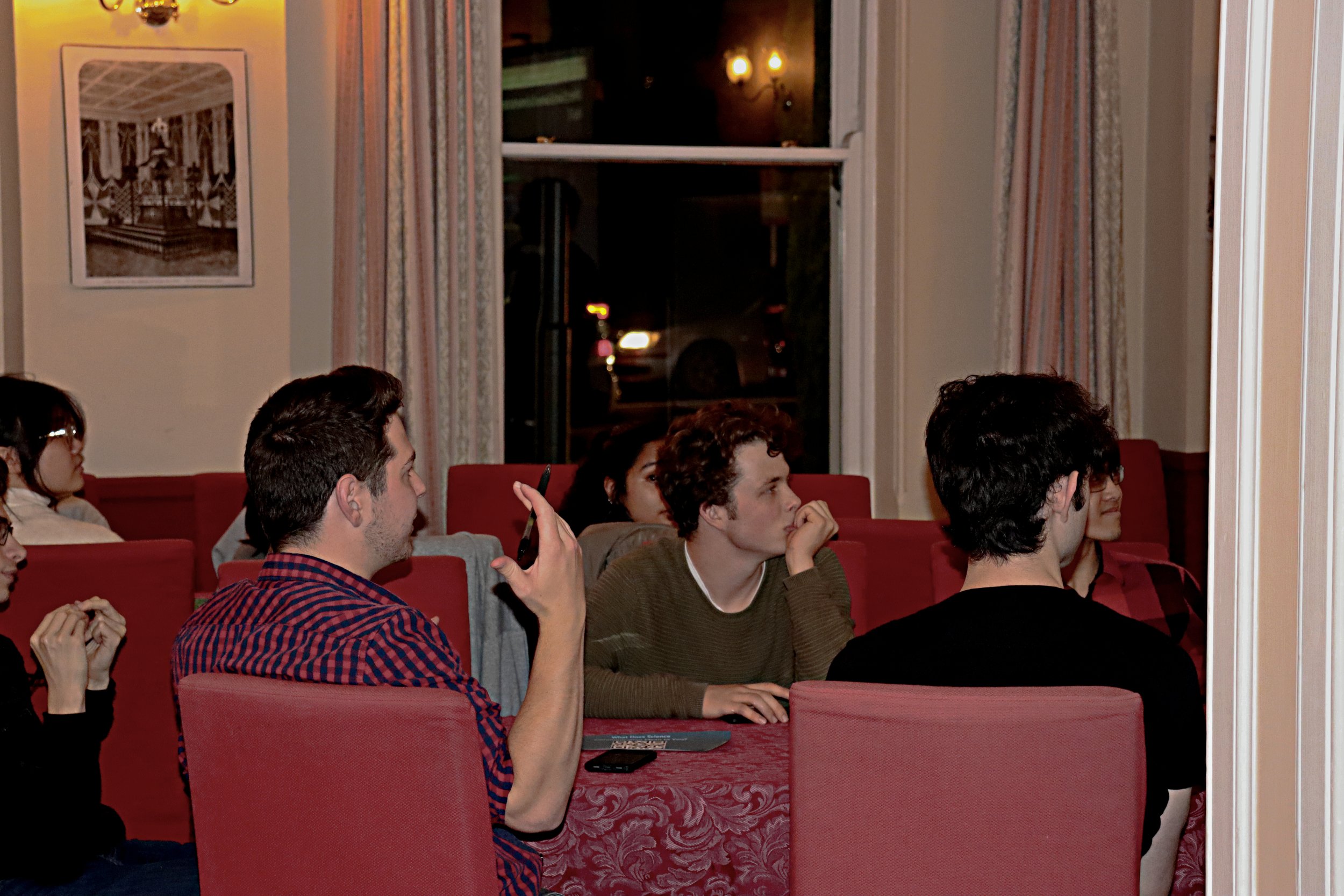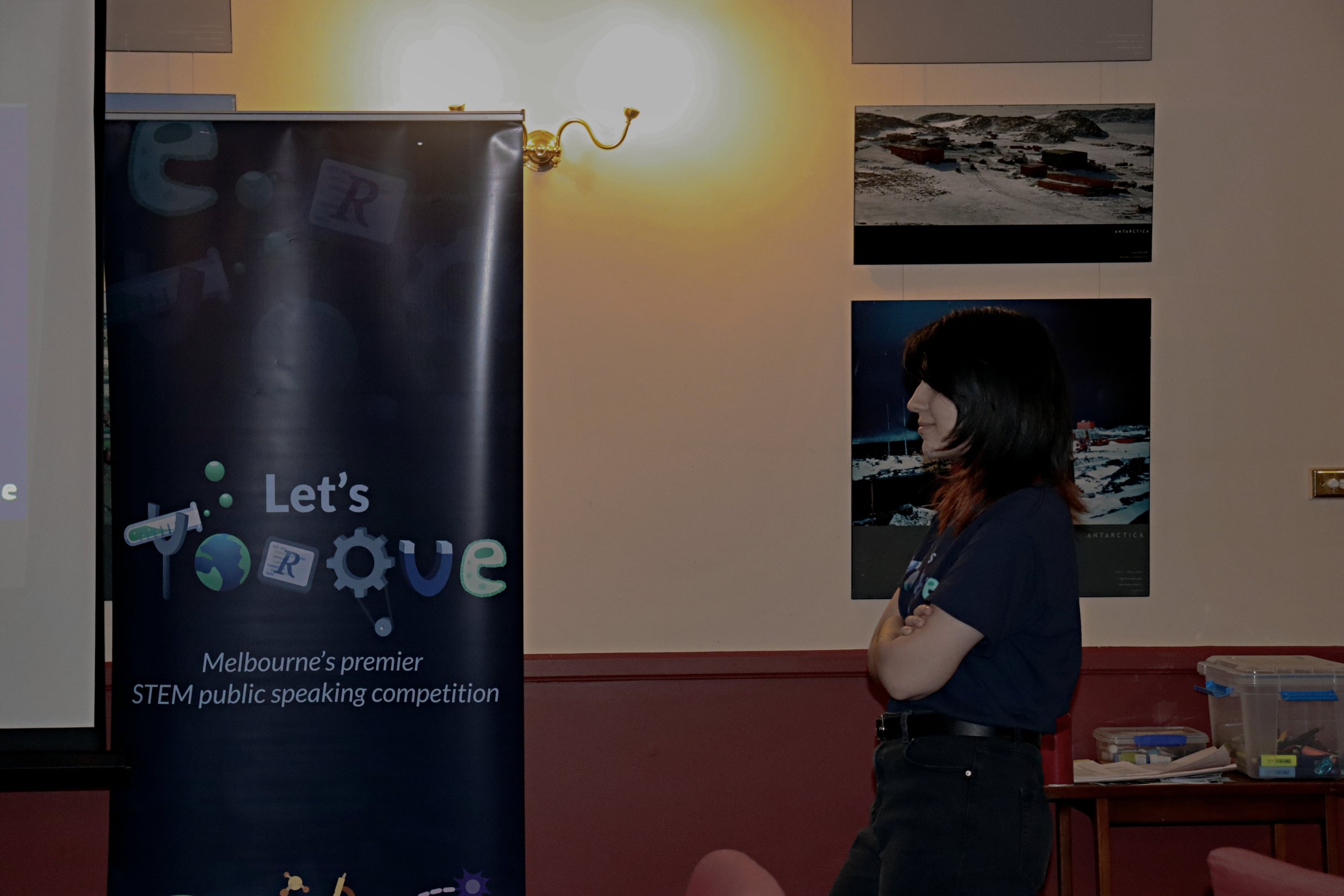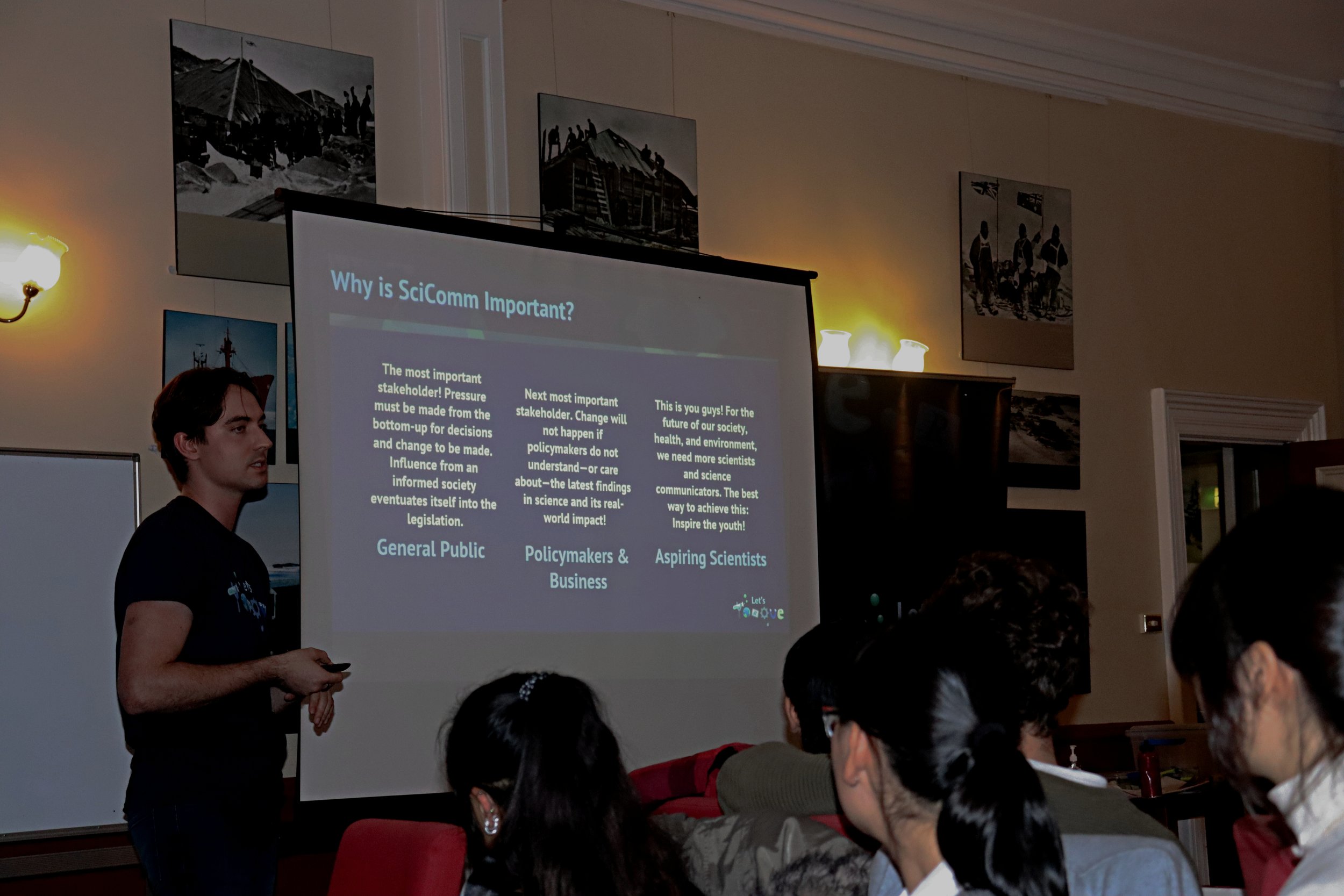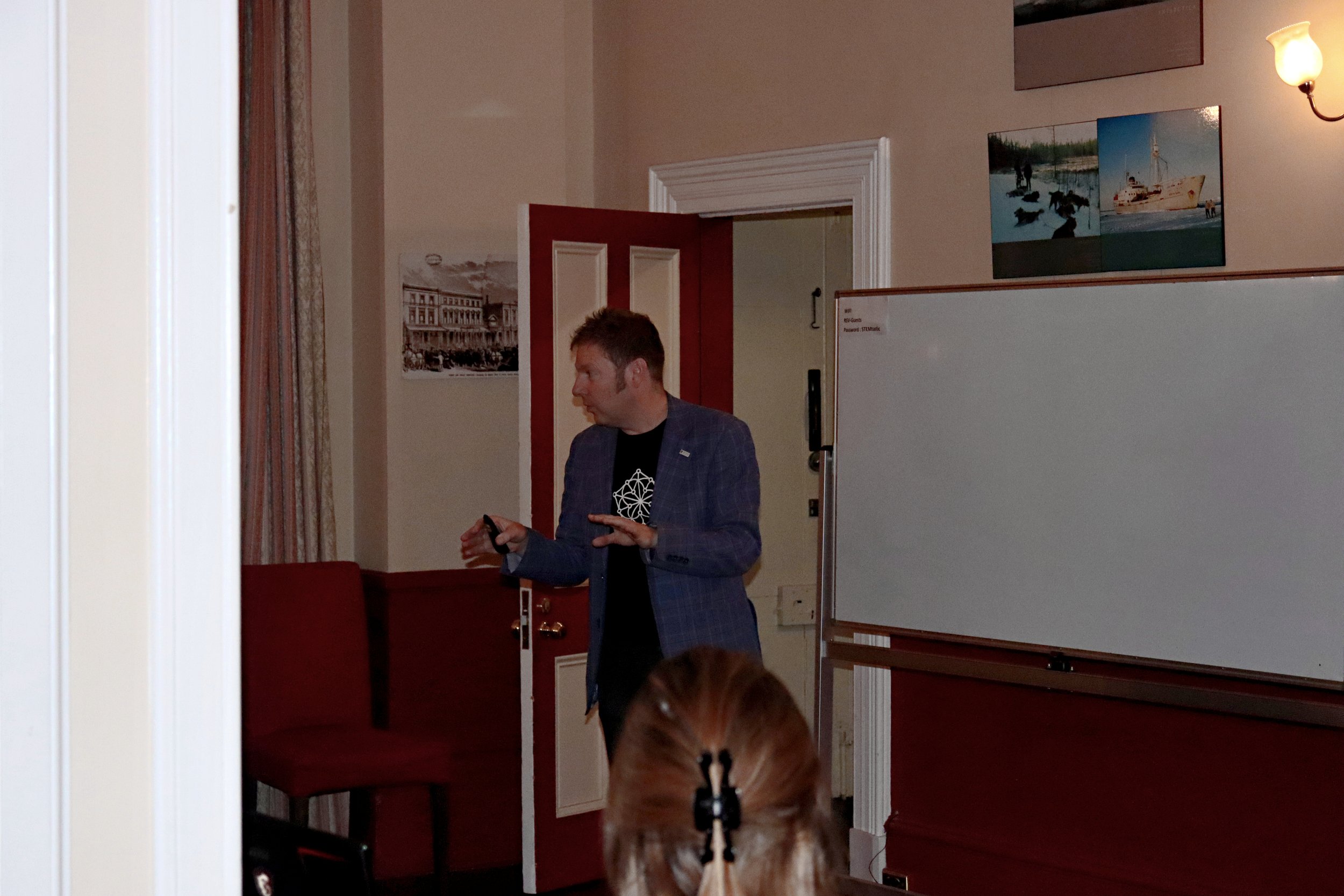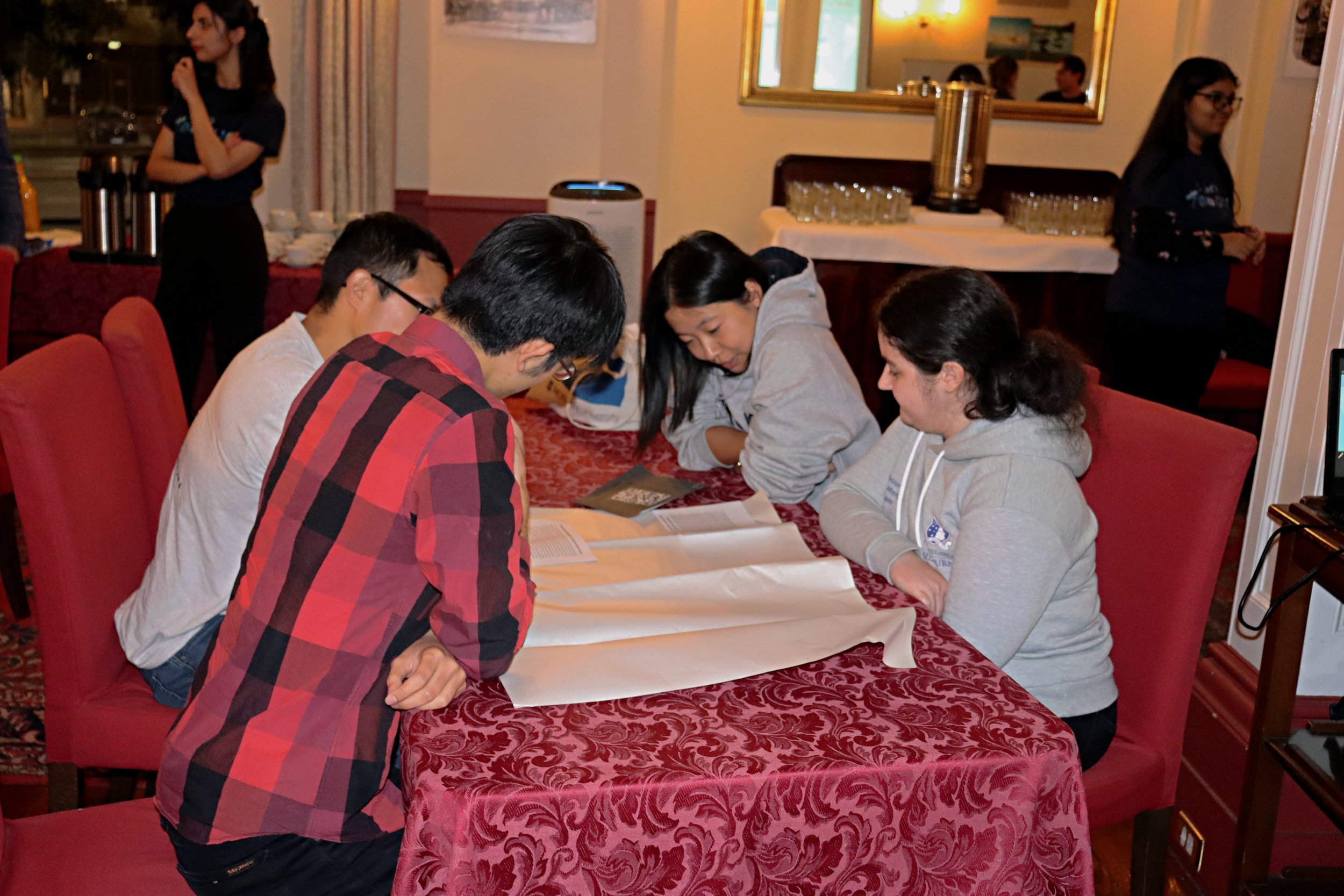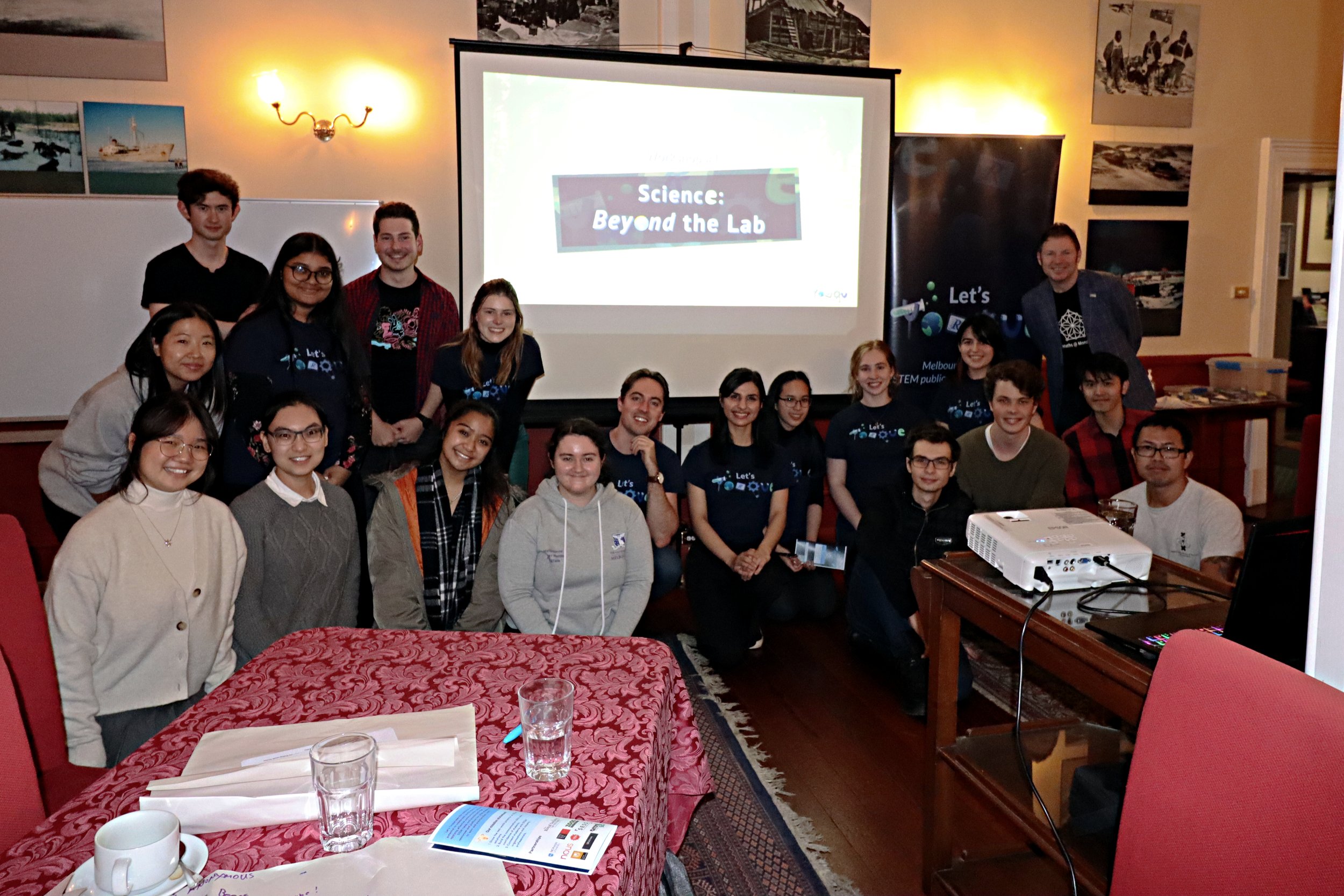At our first workshop for 2022, Science Beyond the Lab, we had the fantastic A/Prof Chris Thompson share some of his Science Communication wisdom and ran some pretty fun activities. In case you couldn’t make it, here is a wrap up of what happened.
So, what did we learn?
Why does Science Communication matter?
Despite the fact that not everyone is as science-mad as the rest of us, there’s no denying that science plays an integral role in the way we live our lives - from the technology that permeates our everyday lives, the medicine we take, to the discoveries that are yet to be made that will revolutionize our way of living.
There is simply no avoiding it. And yet, for something so inescapable, accessibility and understanding is still a huge obstacle. At Let’s Torque, we believe that scientific knowledge shouldn’t just be limited to those who have already committed themselves to the field.
Science communication, as described by Sam Illingworth and Grant Allen, is an umbrella term that centers around four key pillars - Informing, Educating, Raising Awareness and Sense of Wonder.
So, who are we doing this for?
So science has a universal presence but how do we harness it to produce real change? By targeting and aligning three main stakeholders: the general public, policymakers and business leaders and aspiring scientists. Without the support of all three, it would be impossible to get enough support - either in the form of public interest, or financial backing. We’ve seen this interrelation clearly in the last two years, with the COVID-19 outbreak. When the interest of the general public, aspiring scientists and policymakers all align, the advancements in science and technology are monumental.
The general public is the most important stakeholder, as what we do must help people and in turn pressure from the ground up drives influence and change - particularly when policymakers and businesses are looking for a financial motive to invest in an issue.
Finally, the future of society, health, technology and the environment are dependent on passionate and articulate scientists who can effectively communicate the importance of their work to the rest of the stakeholders.
Workshop Activities
With all this in mind, we shaped our workshop with the goal of exploring Science Beyond the Lab.
The first activity was called the Abstract Prompt - where we gave participants a list of technical abstracts for articles, typified by jargon, and were asked to write a new title, to be captivating and engaging - without compromising the scientific integrity.
Huge shoutout to Joshua Nicholls - Head of Education 2022 and Winner of Let’s Torque 2021, for this example!
Participants did an incredible job with this activity. Using language tips and tricks, such as word play, alliteration and rhyming, the groups were able to flex their writing skills as well as their knowledge of science. The results: a series of very funny and engaging titles, from a range of frankly quite overwhelming abstracts.
The following activity was an activity about understanding the Audience and how that might shape how you pitch the information. Groups were assigned an audience and new article at random - and were asked to plan and present how they might communicate the information in the article.
Combinations of articles and audiences included an article about evidence against the proposal that vaccines caused autism to be explained to Karen, a middle aged, suburban mother of three. Or an article about the potential therapeutic benefits of Naltrexone to help with alcohol addiction, to be explained to a disgruntled bartender.
The resulting skits were, again, hilarious and engaging. It was fantastic to see participants really understanding the importance of knowing the audience in order to effectively communicate scientific concepts.
“The event was in general really fun and an eye-opener for me into science communication” Sirui Fang, a second year Bachelor of Pharmaceutical Science at Monash University told us, “and the activities we had, made the day more interactive and engaging”
Overall, it was a great evening and the team at Let’s Torque is so grateful for all those who showed up and got involved! The online resources are now live on our website and we encourage you all to follow us on social media and stay tuned for updates about the next workshop on May 30th.



